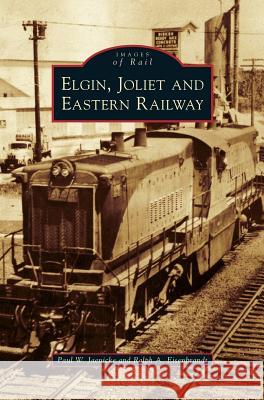Elgin, Joliet and Eastern Railway » książka
Elgin, Joliet and Eastern Railway
ISBN-13: 9781531631543 / Angielski / Twarda / 2007 / 130 str.
In 1884, the Joliet, Aurora and Northern Railroad was formed to connect the growing industrial cities of Joliet and Aurora. This system evolved into the
Elgin, Joliet and Eastern Railway. By 1893, it encircled Chicago from Waukegan, via Joliet, to Porter, Indiana. The railroad developed into a prosperous subsidiary of U.S. Steel at the beginning of the 20th century. It primarily served the steel
mills and facilities of its parent company and as a bridge route between the many Chicago railroads it crossed. It has also been an industry innovator. It was one of the first Class 1 railroads to completely convert to diesel locomotive power in 1949 and the first in the world to install an automatic, electrically operated car retarder yard in 1952. Today it is the same prosperous railroad it was over 120 years ago, serving the rail transportation needs of its online customers and as an even more important bridge route for the region's railroads.
In 1884, the Joliet, Aurora and Northern Railroad was formed to connect the growing industrial cities of Joliet and Aurora. This system evolved into the
Elgin, Joliet and Eastern Railway. By 1893, it encircled Chicago from Waukegan, via Joliet, to Porter, Indiana. The railroad developed into a prosperous subsidiary of U.S. Steel at the beginning of the 20th century. It primarily served the steel
mills and facilities of its parent company and as a bridge route between the many Chicago railroads it crossed. It has also been an industry innovator. It was one of the first Class 1 railroads to completely convert to diesel locomotive power in 1949 and the first in the world to install an automatic, electrically operated car retarder yard in 1952. Today it is the same prosperous railroad it was over 120 years ago, serving the rail transportation needs of its online customers and as an even more important bridge route for the regions railroads.











